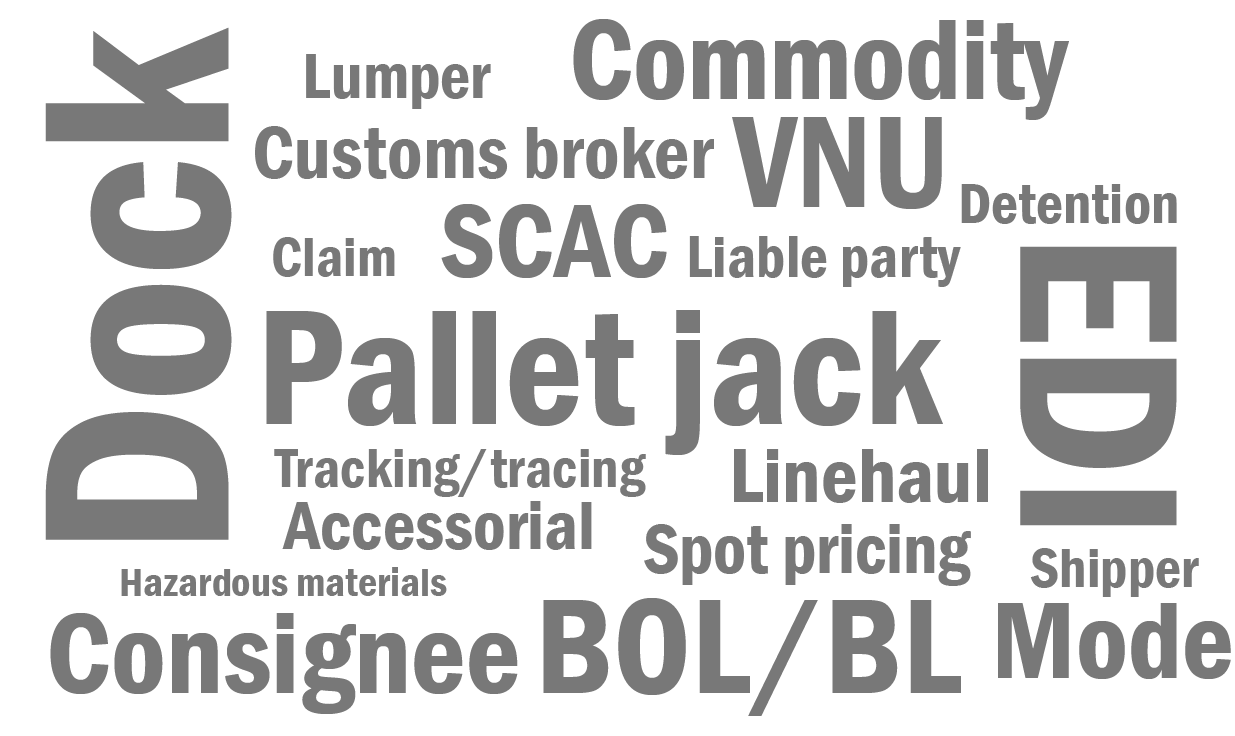Shipper | Best practices
Less-than-truckload (LTL) terms to know
Here is a list of less-than-truckload (LTL) terms and acronyms you will need to know when working with an LTL carrier or shipping provider.

Here is a list of less-than-truckload (LTL terms and acronyms you will need to know when working with an LTL carrier or shipping provider.
If you have questions about your LTL shipping needs, contact a Schneider expert today.
- Accessorial: An additional service that is provided to a customer beyond the base linehaul and fuel charges. Examples of accessorials include services that require additional driver handling and time such as a liftgate or notification prior to delivery. Commodities that require additional handling or certification, such as hazardous materials or freeze protection, are also accessorials.
- BOL/BL: An acronym for bill of lading, which is a document specifying the type, quantity and destination of the goods to be transported. The Department of Transportation (DOT) requires that a bill of lading accompany a shipment.
- Claim: The demand for payment to compensate for freight damage that occurred while cargo was in the hands of the carrier.
- Commodity: A material or finished good that is transported or stored within a supply chain.
- Consignee: The final destination of a shipment (order). The commodity is consigned (delivered) to the receiver.
- Customs broker: A customs broker acts as an agent for a customer/shipper in conducting customs business on their behalf. Specifically, a customs broker prepares and files the necessary customs entries, arranges for the payment of duties, takes steps to affect the release of the goods in customs custody and represents their clients in business matters.
- Detention: Refers to excess time a shipper or consignee detains a trailer/driver while loading or unloading. Detention charges are billed according to the amount of time that exceeds a specified free time allowed for weight and type of load hauled.
- Dock: An entry of a shipping facility, usually raised, that allows trucks to back up to load and unload freight from trailers.
- EDI: Electronic data interchange. A process that allows two-way data transfer between the transportation provider and shippers for shipment status and remittance advice. In addition, transactions including shipment tender, billing, shipment status and remittance advice. In addition, it is a means of communicating the movement information to the carrier.
- Freight class: Determines the cost of shipping based on the characteristics of the freight; such as, density, stowability, handling and liability. The National Motor Freight Traffic Association (NMFTA) defines freight class to standardize pricing across different carriers. Determining the correct freight class can directly impact your shipping costs. To simplify the process and avoid unnecessary charges, use our Freight Class Calculator. It’s a quick and reliable way to ensure your shipments are accurately classified.
- Hazardous materials (HAZMAT): A type of commodity, which is a substance or material that has been defined by the secretary of transportation to be capable of posing an unreasonable risk to health, safety and property when transported.
- Liable party: The party who is financially responsible for payment of the invoice. Linehaul: Refers to the movement of freight between cities (the loaded miles associated with a request, origin to destination).
- Lumper: Refers to a laborer who helps load or unload and is not employed by or associated with the carrier.
- Mode: The type of transportation that is used for a movement (truck, rail, LTL, air, boat, etc.).
- Pallet jack: A cart with forks on it that can be pulled. The forks can be placed under a pallet to move it manually.
- SCAC: Standard carrier alpha code. A four-character ID number assigned by the DOT to all carriers.
- Shipper: The customer loading the cargo to be shipped.
- Spot pricing: A one-time rate for a specific shipment or movement.
- Tariff: A schedule or system of rates for the determination of freight charges by the carrier. Tariffs must, by law, be posted with the Interstate Commerce Commission.
- Tracking/tracing: Trying to locate a shipment that has been reported undelivered by the consignee or finding its current status of its movement.
- VNU: Vehicle ordered, not used. When a carrier dispatches a vehicle to pick up a shipment, but, due to no fault of the carrier, the vehicle is not used.
Learn more about Schneider less-than-truckload (LTL) shipping, read an LTL-related business case study, learn about LTL as part of your transportation mix, or, use the link below to begin a conversation with an experienced expert today.
Drive your business forward
Sign up to receive our industry leading newsletter with case studies and insights you can put to use for your business.












